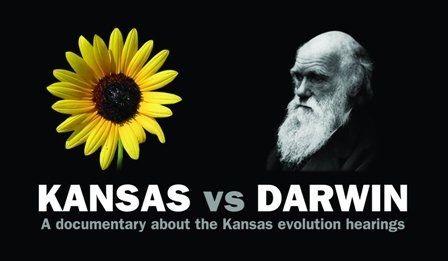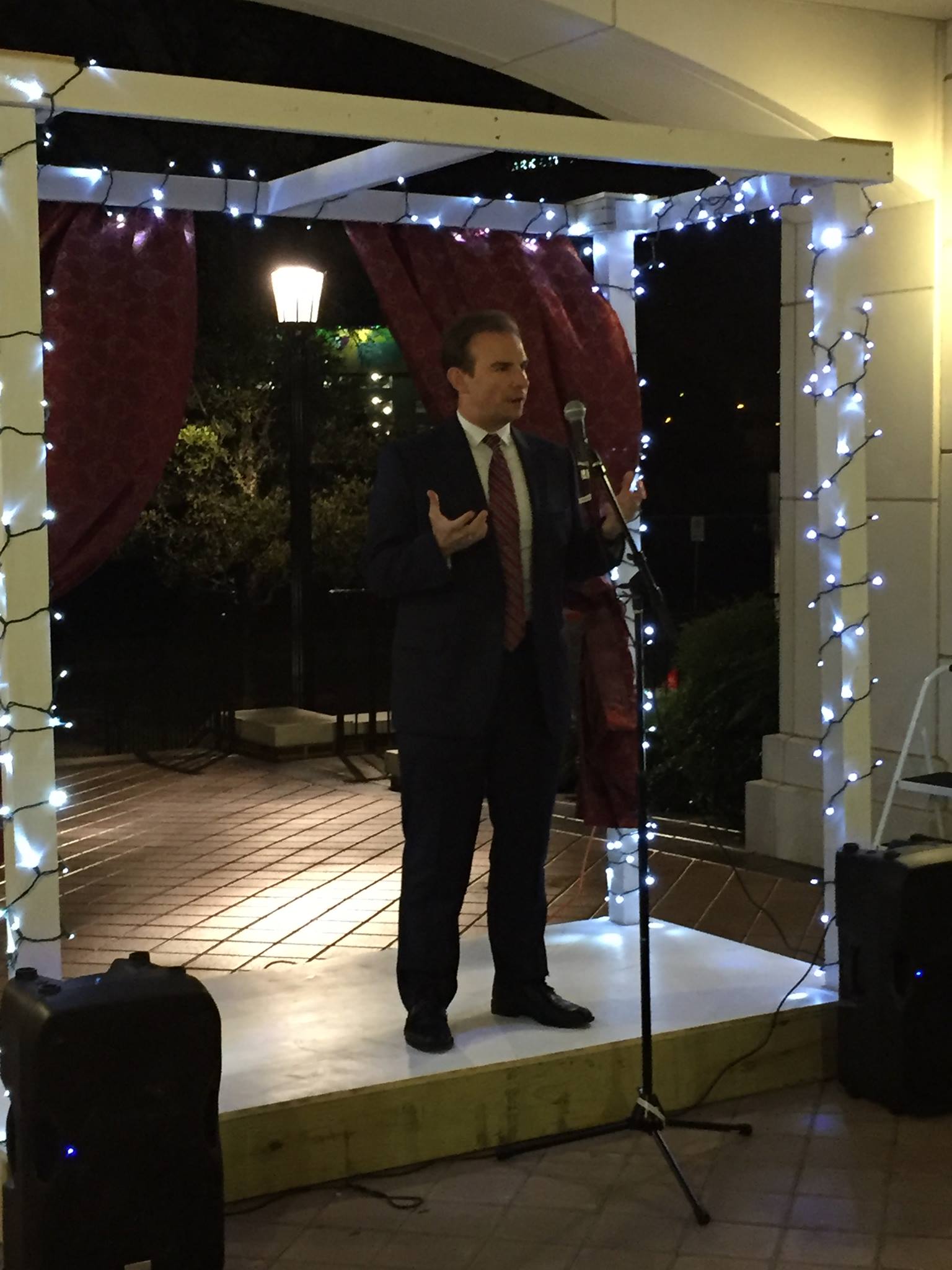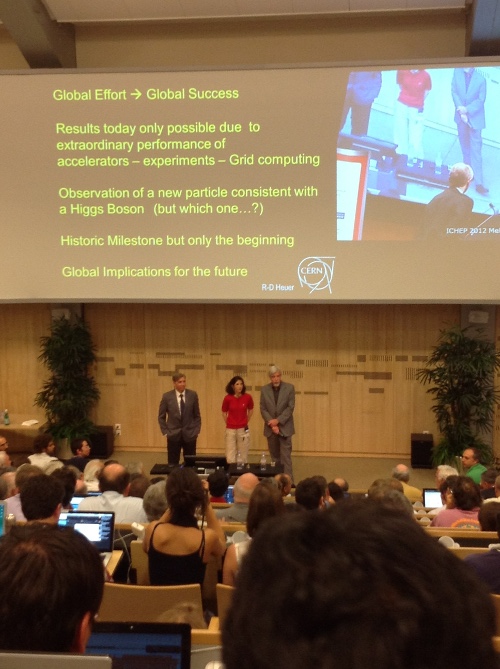19:08: Conclusion of screening and talk.
19:07: ignoring the teaching of evolution is typical; it avoids the clashes with parents.
19:04: Q: Are there statistics on the teachers and their views? A: No, that information is not easily accessible – it might be considered an invasion of privacy. Here is, in fact, a study mentioned by one audience member surveying teachers: http://www.plosbiology.org/article/info:doi/10.1371/journal.pbio.0060124.
19:01: McLeroy’s position was dependent on the support of the board, and his ideology aligned with the majority. He was not reappointed as chair, losing by a single vote in the legislature with 1 Republican voting against him. Then he lost the election to SBOE in the next election, by 400 votes. Now no longer has anything to do with SBOE. Perry then appointed another fundamentalist as chair, without even interviewing or contacting her. Now she is off the board. Another similar chair is now on the board. Who knows what will happen with redistricting. Every single member of the board is up for re-election (that is, their positions are up for re-election).
18:54: Q: Could you talk about the relationship you had with Don McLeroy, former chair of the Texas SBOE? A: He was a born-again Christian, a dentist. Charming, never in your face. Strident in his own views; a young-earth creationist who believes the ark is the source of all animals on the earth. He believes the dinosaurs went extinct later. In a film showing soon, he is shown taking schoolkids marking off the size of the ark in a field using cones to make the point that is was “plenty big enough” for all the animals. That’s his position. The chair has a lot of power on the SBOE. They can call to order anyone speaking too long, or keep them on track (how he defines it), and controls public testimony (time and who speaks). When the board talks about the standards, the board members propose amendments and deconstruct history, demolish biology, etc. It’s all a sum of small little changes in the statements for teachers to follow. McLeroy played a leading role in creating these amendments if no one else thought of it first. Insisted on having teachers pose challenges to evolution in class. One of the most “insidious” amendments he issued, at the 11th hour in December before the May final vote, was as follows: discuss the sufficiency or insufficiency of common origins to explain the sudden appearance, the stasis, and the sequential nature of fossils in the record. These are non-sequiters; they have nothing to do with one another. Common descent is the result of an interpretation of evidence, and could not be responsible for appearance of fossils in the cambrian; etc. They have no relation to one another. These three are unrelated in any fundamental way. Between that time, and May, when they made the final judgments, a whole lot of lobbying went on. Some SBOE moderates were convinced they should have never voted on this, and the moderates and Democrats voted to eliminate it in May. A conservative member made a substitute motion about these issues to avoid political reprisals from their constituents; it was intended to have students learn about the three things, rather than specifically assess “sufficiency or insufficiency.”
18:52: What percentage of Americans deny the existence of evolution? About 60-70%. What percentage believe humans were created in their current forms, about 10,000 years ago? About 25%. What about college educated or post-graduate education? 90%-100% accept evolution and the long antiquity of the human species. No college education swings the numbers in the opposite direction.
18:50: On the textbook approval committee, one member objected to a textbook including evolution. A compromise had to be worked out with the publisher as a result, for that particular part of the text.
18:49: R.W.: schools sometimes get “around” evolution by merely teaching taxonomy. They learn the basis of biological diversification, but nothing about how the diversification came to be. In rural schools, there is typically 1 teacher, captive to the textbook, and not trained formally in biology/science.
18:48: One student notes that in middle school, when evolution is supposed to be presented, it was skipped over. Dinosaurs, then straight on to Newton. Education by omission.
18:46: Q: “What was the time frame for the Texas SBOE hearings in Austin.” A: 2008. They are periodically reviewing science standards on a schedule. Garrett adds that the schedule is shifting and the next review is not settled yet.
18:44: “Tell me one weakness you want inserted into the lesson plan in opposition to evolutionary theory.” (R.W.) Not one was offered, even by people on the opposing side. Most arguments were based on lack of evidence – and the absence of evidence is taken as the evidence of absence. The Kansas board stuff happened before Kitzmiller v. Dover; the Texas SBOE stuff happened afterward. Their strategy was different,
18:43: The writing team was 25 people; 8 opposed the view that evolution should be taught as science. The board decided to hold hearings on the minority view, meaning the minority view was the foregone conclusion of the board. The hearings were to give a veneer to the decision.
18:39: We hear from Ron Wetherington (R.W.). He tells us that at the end of all of this, by a vote of 6-4 the redefinition of science was passed. After 1.5 years, the board was reshuffled and that rule was overturned. As of now, Kansas does NOT permit the teaching of intelligent design/creationism. Kitzmiller v. Dover sealed the deal on that one, too. He notes that there are two claims for the “minority view” in the film: science is not based on fact, but on opinion regarding facts, which can be challenged (along with the conclusions of science); and, unless science is trying to hide something, they should allow us onto their playing field where we can insist on examining, in the schools, both sides of the issue. “Both sides” and “balanced treatment” are the war cries of the movement. In their view, there are two sides.
18:38: We’re done with the screening. Full movie here: http://www.kansasvdarwin.com/
18:34: We’re not trying to redefine science; we’re trying to give a new definition of what science does. Hommminawhat?
18:29: we hear arguments against a science that only includes natural causes for natural phenomena. SBOE member refers to the discussion of this as “scientific talk.” Wow. “You don’t need to be an expert in science . . . to find evidence to support the teaching of a controversy.”
18:27: We hear from some Kansas citizens at the Topeka Zoo about their opinions about whether there is evidence for an explanation other than evolution, or whether they believe in literal creation, etc. This leads into the goal of the Kansas SBOE wanting to redefine science.
18:23: Now we hear about the boycott of the hearings, and opinions on both sides about the boycott. Purpose of the boycott was to avoid giving the anti-science forces political cover for their choices. Then they can claim that “both sides” were equally weighed and science lost.
18:20: Now we hear from the Intelligent Design Network about how the writing was “rigged.” They suggested the hearings. The goal was to get the public and the committee to “understand the issues.” Contrasts “intelligent design” with “creationism.” – makes the usual point about “purpose” or “complexity.”
18:19: we hear from Kansas Citizens for Science about how the hearings were a facade to allow later justification of revising science standards. The writing committee had already made recommendations that didn’t include creationism, so the hearings were meant to create a veneer of “equal time for equal sides.”
18:17 At this point in the movie, we’re beginning to see parts of the SBOE hearings on science standards. So far, they’ve shown three SBOE members and their views on evolution (by natural selection). The usual stuff: it’s “just a theory,” or there is no evidence for it, or it’s dogma and should be challenged. Brings back memories of when this all happened.
18:06 Event starts. Two students talk about the effort to start a formal TFN chapter at SMU. Garrett Mize from the main TFN organization explains their origins and role in advocacy issues. Their blog: http://tfninsider.org/. Director of the film is a friend of TFN. We’ll watch the first 30 minutes of the film. Talks about the State Board of Ed of Kansas and their efforts to oversee science standards in Kansas. Texas has the same issues here.
18:00 Event is about to start. Maybe a dozen or so people here. Pizza is hot and free.





